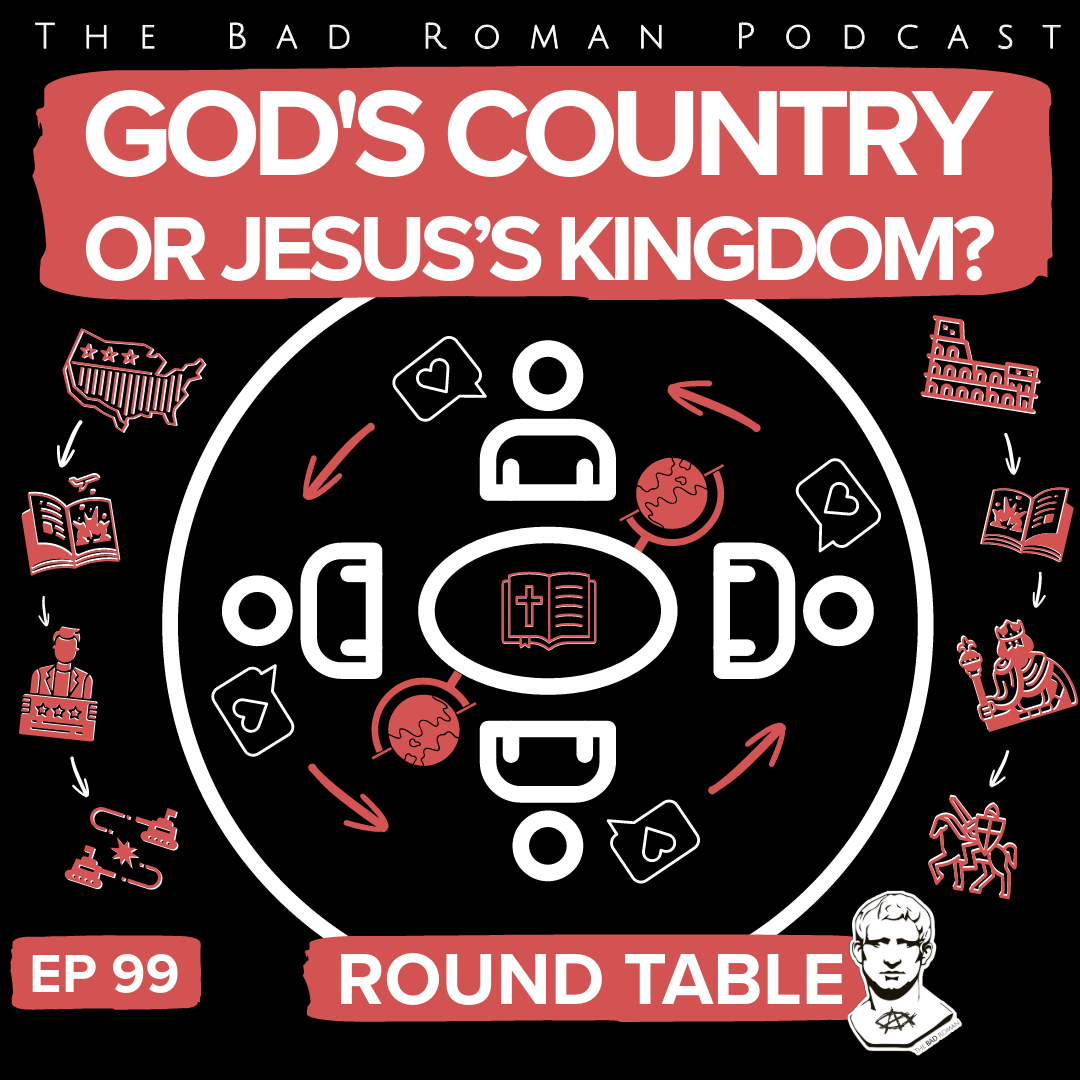About this Episode
Unveiling the Hidden: How Occult Practices Shape Our World and Faith
Ever wondered why the world seems increasingly chaotic? Why traditional Christian values appear to be eroding? Brandon Kroll, host of the Manna Daily Podcast, joins us to peel back the layers of our reality and expose the hidden forces at play. This eye-opening conversation challenges everything you thought you knew about faith, government, and the occult.
A Journey Beyond the Surface
Brandon's path to uncovering hidden truths began early. As a contrarian by nature, he always questioned the status quo: "I've always been very much the contrarian. I've always been somebody that's like, okay, that's cute, but what else is missing in this history book?"
This curiosity led him to explore topics often overlooked or dismissed by mainstream Christianity. From the Book of Enoch to the alien question, Brandon delved into areas many consider taboo.
But why venture into such controversial territory? Brandon explains: "What I'm trying to do is put myself out there, go behind enemy lines, acquire intel so that we better understand our Bibles, and we better understand the world that's at large."
The Kabbalah Connection
One of the most startling revelations Brandon shares is the pervasive influence of Kabbalah in our world. Far from being an obscure Jewish mystical tradition, Kabbalah's tenets have seeped into many aspects of modern life – including Christianity.
Brandon breaks it down:"Kabbalah is already saying, love the things of this world, earth and eternity. That's fine. God and government, okay, Christ and country, perfect. Scripture and science, you got it. But if you try to say, no government, that's a problem."
This blending of spiritual and worldly power is at the heart of many issues we face today. It's a subtle deception that's led many Christians astray without them even realizing it.
The Government-Occult Nexus
If you've ever wondered about the connection between government and occult practices, you're not alone. Brandon provides compelling evidence of this link: "Ephesians 6:12 with the Geneva Bible... It says, 'for we wrestle not against flesh and blood, but against principalities, against powers, and against worldly governors... against spiritual wickedness, which are in high places.'"
Interestingly, the phrase "worldly governors" was removed in the King James Version. This omission speaks volumes about the potential manipulation of scripture to serve political ends.
Rethinking Our Approach to Faith
Brandon's insights challenge us to reconsider how we approach our faith and engage with the world. He emphasizes the importance of personal study and discernment: "Don't just listen to the holy man that tells you what it says... Make it personal."
This call to individual responsibility echoes throughout our conversation. It's a reminder that true faith isn't about blindly following traditions or earthly authorities, but about seeking a genuine connection with the divine.
Practical Steps for Awakening
So how can we apply these revelations to our lives? Brandon offers several actionable strategies:
Question everything, especially long-held beliefs and traditions.
Study scripture in its original context, looking beyond modern translations.
Be aware of the subtle ways worldly philosophies can infiltrate our faith.
Focus on living out the basic tenets of Christianity rather than getting caught up in denominational disputes.
Recognize the difference between being a "patriot" and a "saint" – you can't serve two masters.
What We Learned About Hidden Influences
This conversation with Brandon Kroll opens our eyes to the unseen forces shaping our world and faith. It challenges us to:
Look beyond surface-level interpretations of scripture and world events.
Question the motives behind governmental and religious institutions.
Seek personal understanding rather than relying solely on authority figures.
Recognize the subtle ways occult practices have influenced modern Christianity.
Most importantly, it reminds us that true faith isn't about conforming to worldly systems but aligning ourselves with divine truth.
Ready to dive deeper into these hidden realities? Listen to the full episode for more mind-bending insights. And remember, in a world of deception, seeking truth is more important than ever. Stay vigilant, stay curious, and most of all, stay true to your faith and don’t forget “no king but Christ.”
Connect with Brandon Kroll:
Books Refrenced:
1. Bloody Zion by Edward Hendry
2. Rulers of Evil by Tupper Saussy
3. Pagan Christianity by Frank Viola
4. New Age Versions by G.A. Riplinger
Bible Verses Referenced:
Matthew 15:1-11 - Discusses man-made traditions in contrast to the commandments of God.
Mark 7:1-13 - Refers to man-made traditions versus God's commandments.
1 Corinthians 11:2 - Mentions the traditions delivered by Paul.
Ephesians 6:12 - "For we wrestle not against flesh and blood, but against principalities, against powers, against the rulers of the darkness of this world, against spiritual wickedness in high places."
Philippians 3:20 - "But our citizenship is in heaven, and we eagerly await a Savior from there, the Lord Jesus Christ."
John 18:36 - "My kingdom is not of this world."
1 Samuel 8:18 - "When the day comes, you will cry out for relief from the king you have chosen, but the Lord will not answer you in that day."
Hosea 8:4 - "They set up kings without my consent; they choose princes without my approval."
Isaiah 5:20 - "Woe to those who call evil good and good evil."
Hosea 4:6 - "My people are destroyed for lack of knowledge."
Genesis 6:4 - Refers to the sons of God and the Nephilim.
1 John 3:1 - "Behold what manner of love the Father has bestowed on us, that we should be called children of God."
Episode Timestamps:
(1:04) Brandon's Background and Journey
Adoption story and educational experiences
Encounters with contrarian thinking and questioning authority
Exploration of hidden history and occult practices
(5:57) Brandon's Political and Spiritual Evolution
First voting experience in 2016
Shift in perspective during 2020 elections
Conviction about church practices during the pandemic
(13:49) Pushback and Growth in Ministry
Experiences with criticism and audience growth
Concept of being "over the target" in truth-telling
(17:44) The Concept of Sin and Missing the Mark
Discussion on the meaning of sin and its relation to being on target
From Pulpit to Podcast: Exodus from traditional church teachings in podcasts
(19:17) Traditions of Men in Scripture
Analysis of the phrase "traditions of men" in the New Testament
Connection to Kabbalah and occult practices
(25:19) Occult Influences in Government and Religion
Discussion on the reality of occult practices in politics
Recommended books for further research (see below for list)
(47:55) Bible Translations and Interpretation
Critique of King James Version and other translations
Importance of understanding historical context and original languages
(54:43) Living Out Biblical Basics
Emphasis on practicing core Christian principles
Critique of denominational divisions and political entanglements
(1:03:29) Early Church Practices and Modern Applications
Discussion on vetting processes in early Christianity
Implications for modern church participation
(1:05:30) Closing Thoughts and Resources
Information on Brandon's podcast Mana Daily Podcast and where to find his work
Invitation for future collaborations






















